RHI inquiry: Audit of NI green scheme found 'no control'
- Published
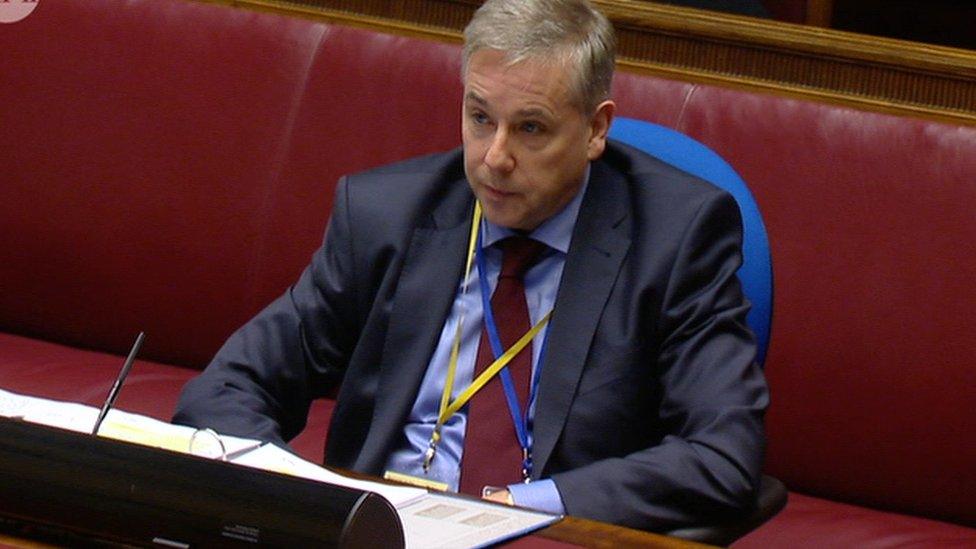
Michael Woods is the head of internal audit in the department that set up the ill-fated RHI scheme
The top auditor in Stormont's enterprise department has said that of 500 reports he did in his career, his investigation into NI's flawed green energy scheme found the most serious flaws.
Michael Woods was appearing at the inquiry into the Renewable Heat Incentive (RHI) scheme.
Friday marked day 107 of hearings.
The initiative was set up in 2012 to boost uptake of eco-friendly heat systems.
But huge subsidies left NI taxpayers with a £490m bill.
Its failings led to the establishment of a public inquiry in January 2017.
Mr Woods, who was head of internal audit in the enterprise department, which set up the scheme, said the investigation in early 2016 showed there was "just no control here".
His report made eight findings, of which seven were ones that needed priority attention.
He said he could not recall any scheme where the system of oversight had been that bad.
"This is the worst opinion I have ever had to give," he said.
His report found a raft of problems across a range of governance issues:
There was no understanding of how the budget worked
The absence of formal project management meant a planned review of the scheme in 2014 was missed
There were no controls to mitigate vulnerability to rising demand
Enterprise officials had abdicated responsibility for monitoring to the regulator - the Office of Gas and Electricity Markets (Ofgem), but did not check they were doing it
Earlier on Friday, Mr Woods told the inquiry that auditors planning to inspect the running of the scheme were not told of the potential risks it posed.
It emerged auditors were not informed that a promised scheme review, which had been a condition of approval, had not been carried out.
'Surprised'
They also were not told how novel and complex RHI was, and were not advised that the equivalent scheme in Great Britain had cost controls, something that had been left out of the scheme here.
The lack of cost controls played a crucial role in how the scheme's budget spiralled out of control.
When he took over the role in 2014, he was "surprised" an audit had not already taken place, said Mr Woods.
The scheme had started in November 2012, some two years earlier.
He said the team delivering it was small with a heavy workload, and was managing a scheme with a sizeable budget.
He said the fact that it was being administered by an outside body, namely Ofgem, created another potential risk that ought to have been checked.
For those reasons, he said RHI should have been looked at earlier.
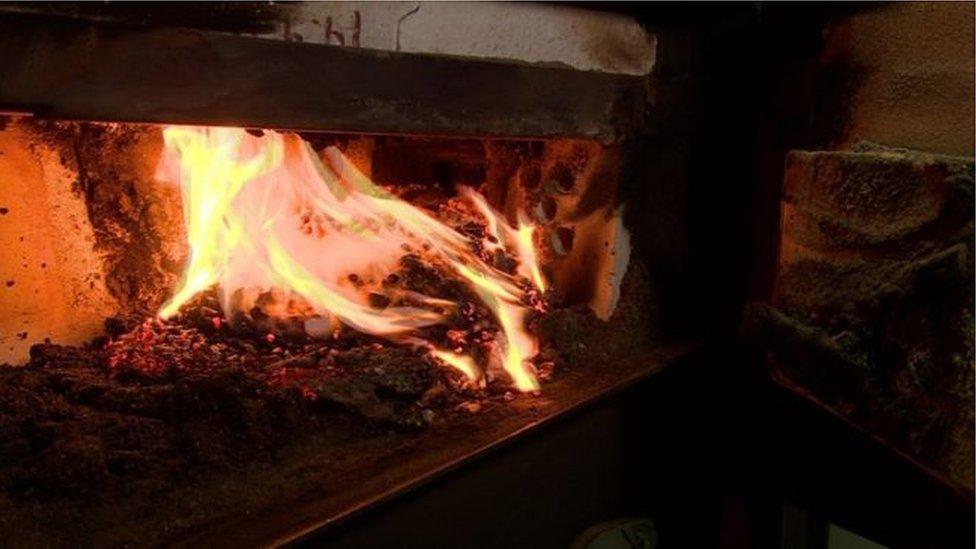
The RHI scheme was established to encourage uptake of eco-friendly heat systems over the use of fossil fuels
He confirmed that when he began making plans for an audit in early 2015, he was not alerted to any issues with RHI.
"I was told nothing about any problems in the scheme," he said.
He said it would have been possible to audit the RHI processes before the scheme had started, something that had been done with the Gas to the West project, a major gas infrastructure project in Northern Ireland.
Inquiry counsel Donal Lunny said that as Mr Woods was organising his 2015-16 audit, officials in energy division were getting emails from concerned businesswoman Janette O'Hagan, alerting them again to abuse of the scheme.
He was not told about them, and he should have been, said Mr Woods.
Had that happened, he would have brought the audit forward, he added.
And the inquiry heard that even though senior officials were aware of control issues with spending on the RHI scheme in May 2015, they were not passed on to him either.
Mr Woods had attended a meeting with finance director Trevor Cooper and permanent secretary Andrew McCormick on 1 June 2015.
'Like a film'
The two men had been at a senior management team meeting a couple of days earlier, where problems relating to the RHI scheme were discussed.
Mr Woods was told there was pressure on the budget and a problem with approvals.
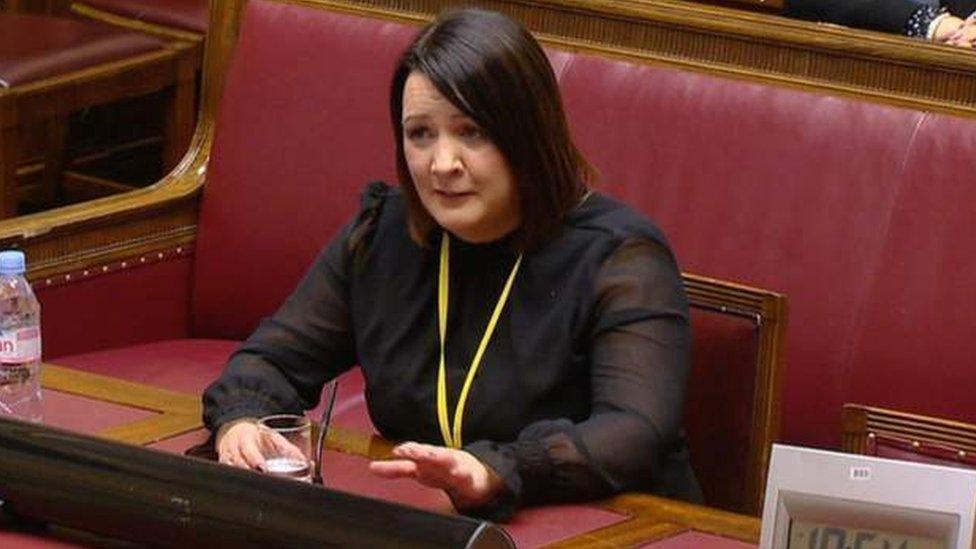
Businesswoman Janette O'Hagan flagged concerns about the RHI scheme on a number of occasions
But he was not told of concerns over controlling the costs of the scheme, or that approval from the finance department had lapsed back in March.
He said he could close his eyes and "replay these meetings like a film", and that he had believed any problems in the scheme were being addressed by senior staff.
Had he known the true picture, he would have insisted that the audit be brought forward.
'Special type of leadership'
On Friday afternoon, Northern Ireland's comptroller and auditor general, Kieran Donnelly, gave evidence to the inquiry and said civil servants needed to go "back to basics" when it came to spending public money.
The NI audit office is independent of government; its role is to ensure that public money is spent in the proper way.
In July 2016, it published a report about the RHI scheme, and found that "serious systematic failings" meant that it was likely to affect the Northern Ireland budget by "hundreds of millions of pounds"
Mr Donnelly told the panel the problems with the initiative took a long time to deal with, and that they could have "been extracted sooner if mistakes had been acknowledged" and referred up the civil service chain of management.
He said there needed to be a step-change across all civil service departments, but that would require a "very special type of leadership" and a "massive change in behaviours".
Mr Donnelly acknowledged the need to improve communication between Stormont departments as well, a problem raised time and again during the inquiry by other witnesses and criticised by the panel.
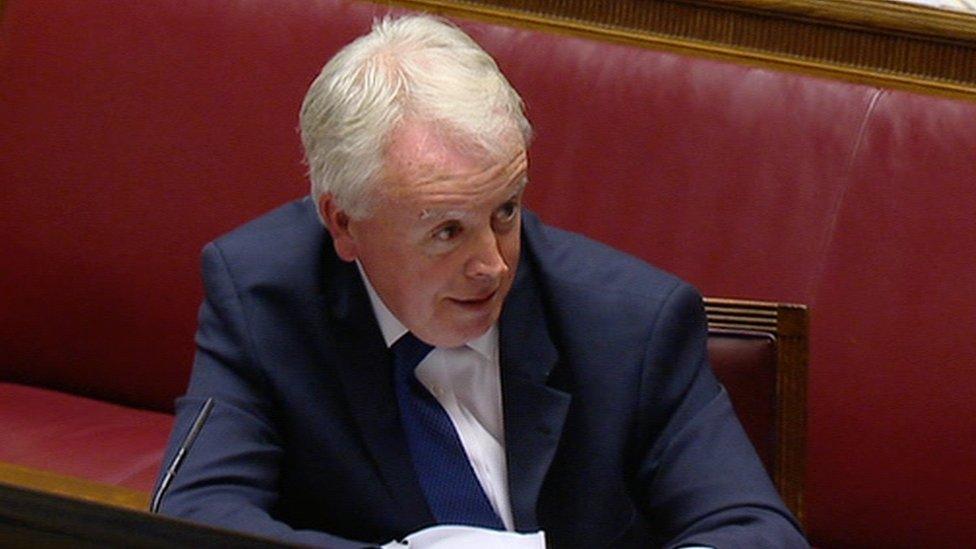
Kieran Donnelly is Northern Ireland's most senior auditor and leads the NI audit office
He also criticised how Stormont's economy department allocated staff to specialist, complex areas of work, and said it needed to change.
The auditor general advised that instead of moving existing generalist officials into specialist roles, it might want to look elsewhere to bring in talent from the private sector.
The civil service just could not afford to get the best people for the most tasking jobs, he added.
He said: "You might have to pay more in the market, but wouldn't that be much better in the long run than having another saga like RHI?"
He told the inquiry that civil servants should have been treating all public money as if it were their own.
"That needs to be ingrained in the mindset of the civil service," he added.
Mr Donnelly was also asked whether, when he first learned that the scheme could be exploited for profit due to critical flaws in how it had been set up, the hurdle might have been "too high in calling it fraud".
'Coach and horses'
He said when he first heard of claims that some claimants had been using smaller boilers to heat empty sheds, his first instinct was "that looks like fraud, or suspected fraud".
He added that when he learned that problems with the scheme's design were so loose that claimants had realised the loophole, it became more complicated to take a view on allegations of fraud.
"But there's absolutely no doubt, it might have been compliant with the letter of the scheme, but it was driving a coach and horses through the purpose and spirit of the scheme.
"It just wasn't correct."
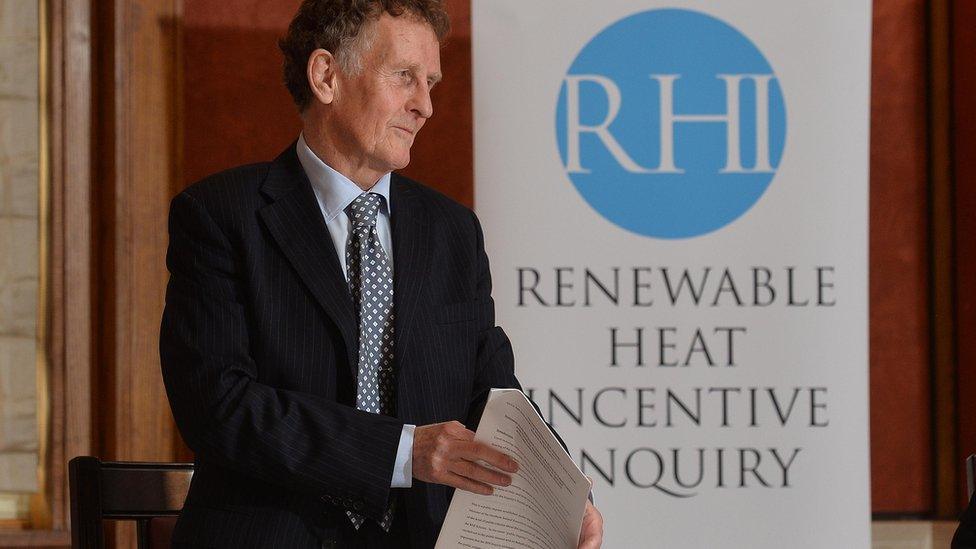
The RHI public inquiry is being chaired by Sir Patrick Coghlin and has heard 107 days of evidence so far
Mr Donnelly agreed with Sir Patrick that the use of the term "gaming" to describe the practice of employing multiple smaller boilers to maximise subsidy was "inappropriate".
"It's putting an acceptable construction on something which is unacceptable," he said.
Sir Patrick said that while it might not technically be fraud because the regulations were so poorly drawn, he considered gaming to be the "exploitation of a scheme that allows you to take advantage of other people's money".
The inquiry's oral hearings are due to conclude at the end of next week.
On Tuesday, former ministers, the DUP's Simon Hamilton and Sinn Fein's Máirtín Ó Muilleoir will give evidence, external.
Mr Ó Muilleoir, a former finance minister, will be the first and only Sinn Féin figure to give oral evidence - he set up the inquiry back in January 2017.
- Published10 October 2018
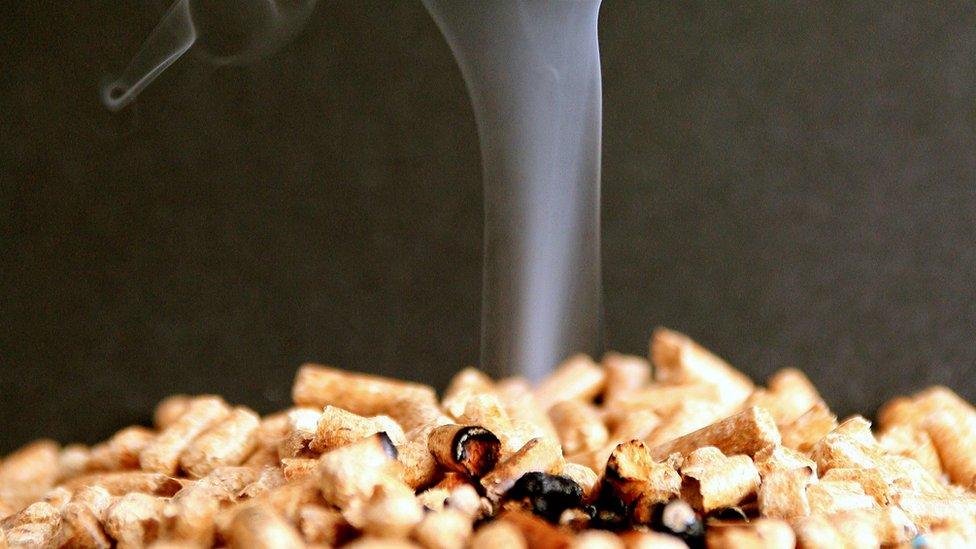
- Published5 September 2018
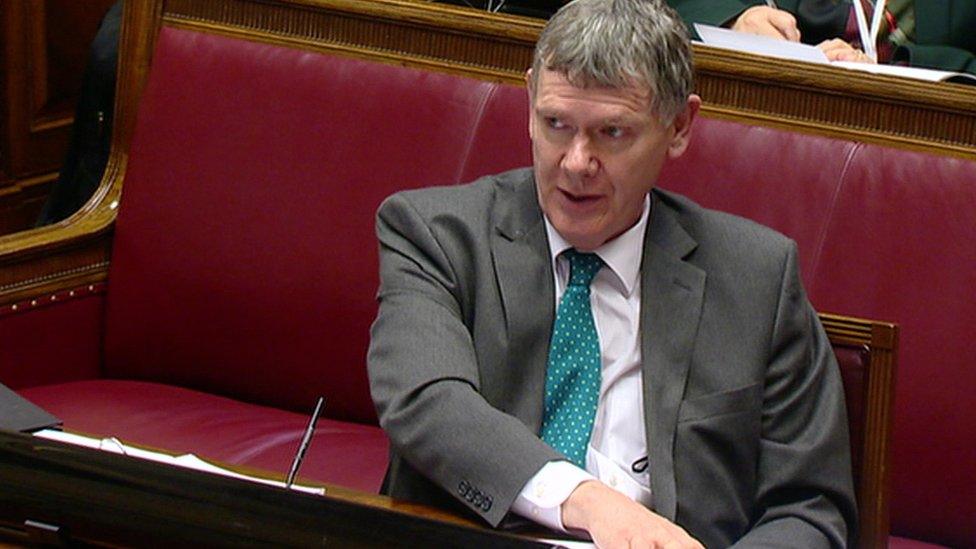
- Published4 September 2018
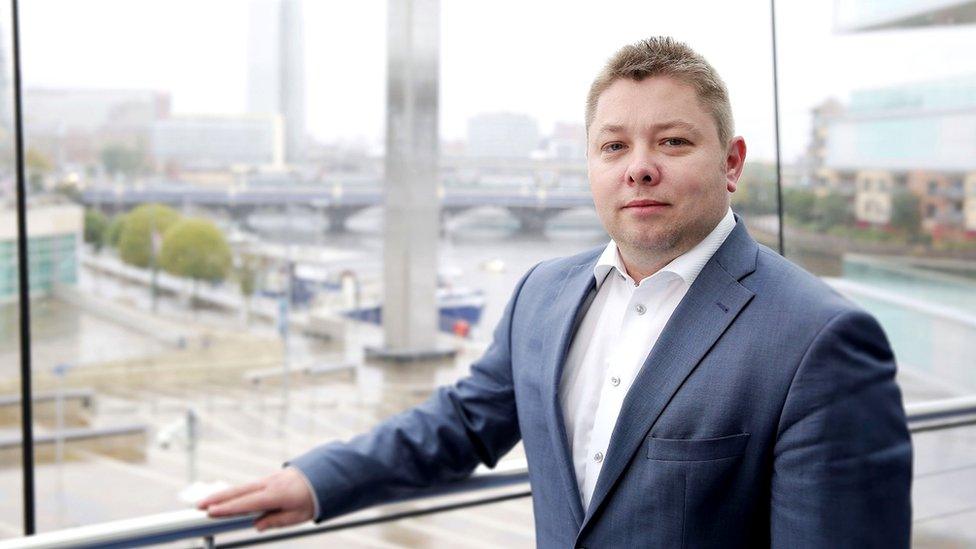
- Published23 October 2019

- Published7 November 2017
